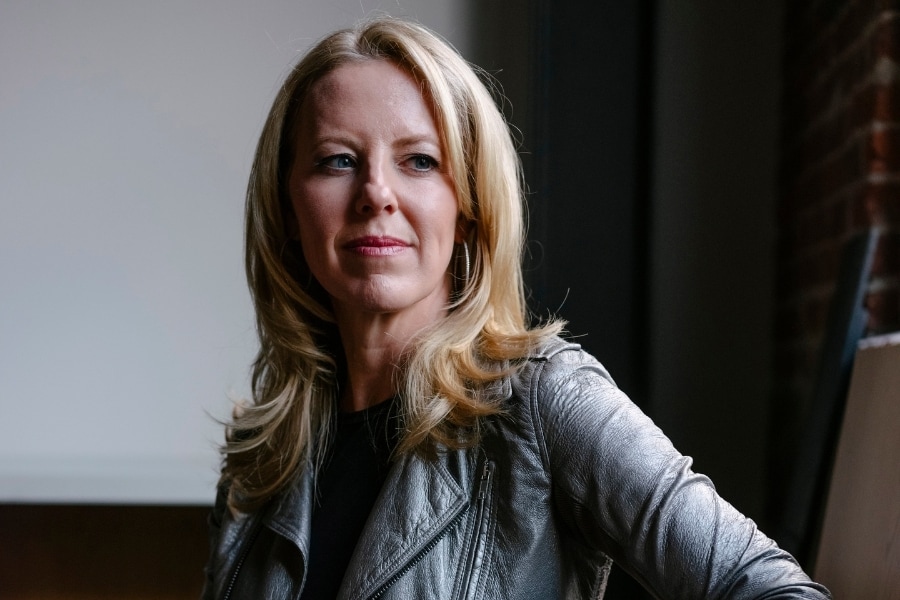
Crypto's top VC is playing the long game
Katie Haun, a top crypto cop turned venture capitalist is now one of the most powerful women in Silicon Valley, with more than $2 billion at her fingertips
 Katie Haun, who created the first federal cryptocurrency task force as a prosecutor in the Justice Department, in San Francisco, June 23, 2021. Haun will co-chair a $2.2 billion crypto fund Andreessen Horowitz announced this week. (Ian C. Bates/The New York Times)
Katie Haun, who created the first federal cryptocurrency task force as a prosecutor in the Justice Department, in San Francisco, June 23, 2021. Haun will co-chair a $2.2 billion crypto fund Andreessen Horowitz announced this week. (Ian C. Bates/The New York Times)
A top crypto cop turned venture capitalist is now one of the most powerful women in Silicon Valley, with more than $2 billion at her fingertips.
Katie Haun, who created the first federal cryptocurrency task force as a prosecutor in the Justice Department, will co-chair a $2.2 billion crypto fund that Andreessen Horowitz announced this past week. She is a general partner at the venture capital fund and an independent director at crypto exchange Coinbase. Chris Dixon, also a general partner at Andreessen, will be the fund’s other co-chair.
This is Andreessen’s third crypto fund. Haun joined the firm in 2018 to co-lead its first dedicated crypto fund, a $300 million commitment. She also co-led Andreessen’s second fund, which launched in 2020 with $515 million. With the latest blockbuster fund, she’ll have a significant hand in shaping the crypto space just as it seems to be going mainstream.
But it’s also a time of uncertainty for crypto. A Chinese regulatory crackdown on Bitcoin is battering prices and raising questions about the value and future regulatory landscape of crypto. She spoke to Andrew Ross Sorkin and Ephrat Livni about the outlook for the burgeoning industry, the geopolitics of blockchain, risk, regulation and the fund’s focus. The interview has been edited and condensed for clarity.
Q: Have we ever seen a government as large as China take the steps that it has taken?
©2019 New York Times News Service







